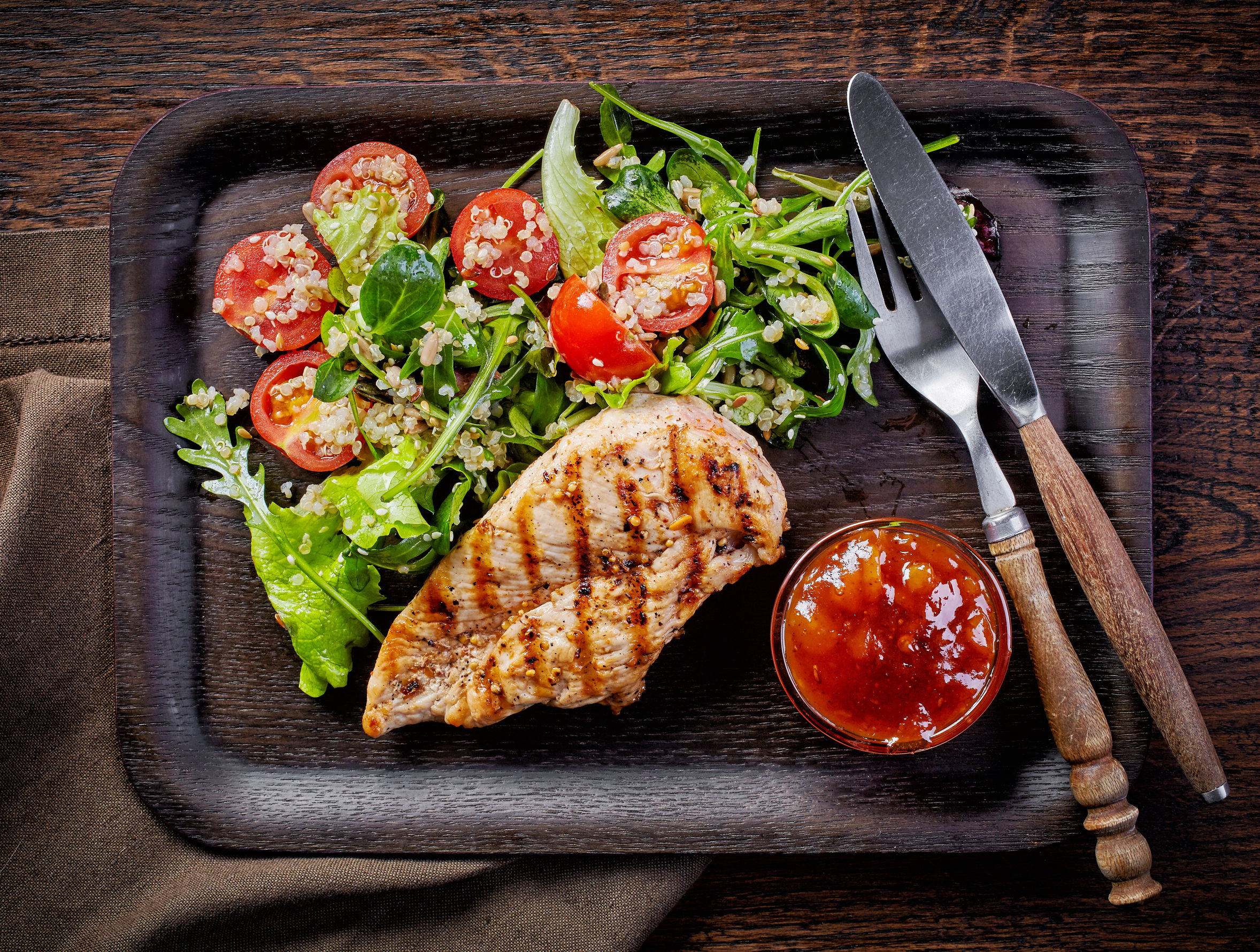The goal of weight loss surgery is to help patients who have been unsuccessful with other weight loss methods lose weight and keep it off for good. The various procedures work through by way of restriction, malabsorption or both. A bariatric procedure will help you lose weight by either restricting the amount of food (and therefore calories) you can consume and/or limiting the calories and nutrients the body absorbs after eating.
But we’ve said it before, and we’ll say it again: weight loss surgery is merely a tool to help you lose weight and keep it off. You must do your part. Sticking to your post-op diet is key to achieving success after weight loss surgery. Success requires a commitment to the process and making lifelong diet and lifestyle changes. If you’re considering weight loss surgery, here’s what you need to know about what eating after surgery will look like for you.
Day 1 and 2: Patients consume only clear liquids.
Day 3-7: Patients are able to start full liquids, including protein shakes, yogurt, etc.
Day 8-27: Patients begin soft solids (nothing hard or crunchy).
Day 28 and beyond: Patients begin a normal, high protein/low carb diet, which will continue for the remainder of their weight loss and healthy eating lifestyle.
As a general rule of thumb, once you’ve reached the four-week mark, you should focus on getting plenty of protein, eating small portions (two to four ounces) of lean meats and fitting in plenty of veggies and low-glycemic fruits, such as berries. Eat three balanced meals and two healthy snacks daily, including three servings of protein, three servings of vegetables and one serving of fruit. Avoid consuming more than two servings per day of breads/starches and sweets. Eat slowly, chewing each bite 25 times. Start each meal by eating your protein first, then move on to vegetables and fruits.
Drinking enough water is another key element of the post-op diet. Drink at least 48 ounces of water daily and limit (or eliminate altogether) carbonated, sweetened, caffeinated and alcoholic beverages.
One potential concern with weight loss surgery is vitamin and mineral deficiency. For that reason, starting two weeks after surgery, patients should begin taking a multivitamin that contains calcium, vitamin D and sublingual B12. These are the minimum vitamin requirements for gastric sleeve patients. Minerals are also essential, so be sure you’re taking vitamins that include zinc, iron, copper, selenium and magnesium. These minerals are not found in most gummy vitamins and some chewables. Be sure to read the label to ensure your supplements include all the essential vitamins and minerals for your post-op nutrition.
Through the years, our team of weight loss specialists at McCarty Weight Loss Center has observed four key behaviors that correlate with long-term success. These include:
- Self-monitoring: Measuring and recording food, weighing on the scale, assessing emotions, etc.
- Choosing whole foods: Shop the perimeter of the grocery store, where you’ll find fresh vegetables and fruit, lean dairy and lean meats. Avoid the highly processed, refined foods found in the inner aisles.
- Uncoupling eating with other activities: Avoid eating while watching TV, reading, working on the computer, etc. If unavoidable, always carefully measure food to avoid mindless eating.
- Eat in a designated eating place (such as the kitchen table): If you’re hungry enough to eat, you’re hungry enough to sit in your designated place to eat.
Working directly with your doctor and nutritionist is also an important part of learning and developing new eating habits that are sustainable over the course of your lifetime. Take advantage of all the post-op support available — you aren’t in this alone. If you have had surgery and have questions about post-op nutrition, give us a call today.






